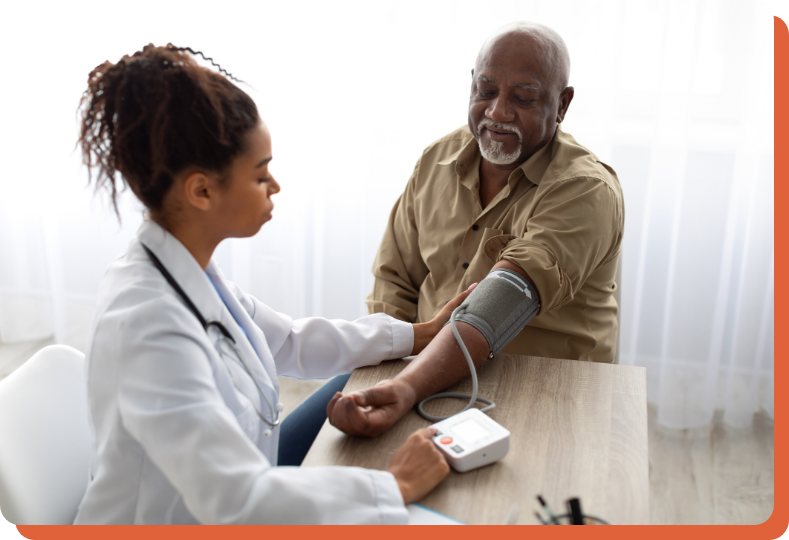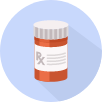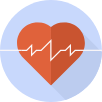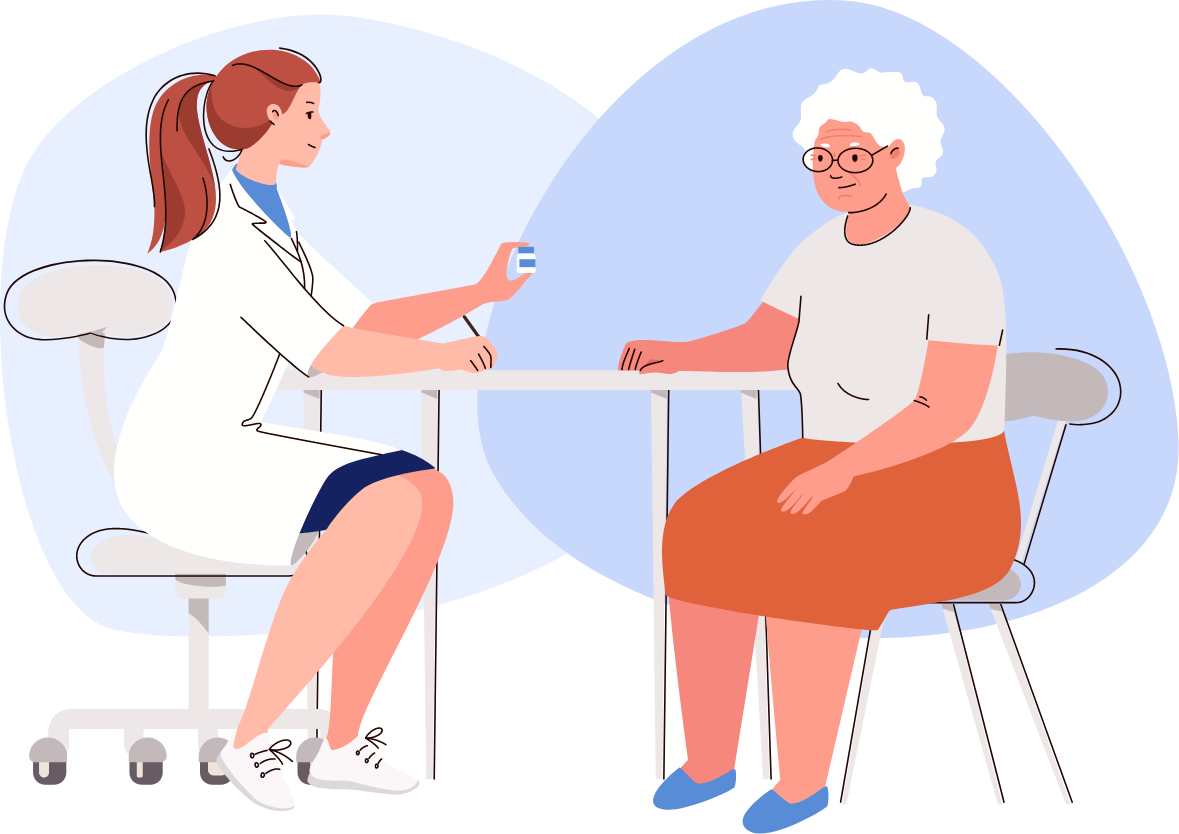
What is Hypertension?
Hypertension, also known as high blood pressure, is a chronic condition characterized by elevated pressure in the arteries. It often has no noticeable symptoms but can significantly increase the risk of heart disease, stroke, and other complications. By understanding what hypertension is, its risk factors, and the importance of regular monitoring and management, you can take proactive steps to maintain healthy blood pressure levels and protect your overall well-being. Our healthcare team is here to provide guidance and support on your hypertension journey.
Hypertension Treatment Services
We offer comprehensive hypertension treatment services with personalized care. Our friendly healthcare professionals specialize in diagnosis and treatment, providing medication management and lifestyle modifications for effective hypertension management at home. Trust us for expert support and a healthier future

Our experienced team closely monitors your medications, provides guidance on proper administration, helps manage potential side effects, and ensures adherence to your prescribed treatment plan for optimal blood pressure control and overall well-being.

Our team tracks your blood pressure levels, ensures accuracy, and collaborates with you and your healthcare provider to make necessary adjustments for the effective management of your condition.

Our expert team provides guidance on dietary changes, exercise routines, stress reduction techniques, and smoking cessation support to help you make positive changes that contribute to better blood pressure control and overall cardiovascular health.

We provide ongoing guidance, address any questions or concerns, and offer continued support throughout your journey to help you effectively manage your condition and improve your cardiovascular health.
Hypertension Frequently Asked Questions
Our helpful FAQ section aims to address common queries related to managing hypertension, empowering you with knowledge and guidance to make informed decisions about your cardiovascular health. Explore the following questions to expand your understanding of hypertension and its management.
Hypertension is generally classified into two stages: Stage 1 hypertension refers to systolic blood pressure between 130-139 mmHg or diastolic blood pressure between 80-89 mmHg. Stage 2 hypertension indicates systolic blood pressure of 140 mmHg or higher, or diastolic blood pressure of 90 mmHg or higher.
Risk factors for hypertension include family history, advanced age, obesity, physical inactivity, unhealthy diet (high in salt, saturated fat, and cholesterol), excessive alcohol consumption, chronic stress, and certain medical conditions (such as diabetes, kidney disease, and sleep apnea). Regular monitoring and lifestyle modifications can help mitigate these risks.
Hypertension typically doesn’t cause noticeable symptoms. However, some individuals may experience headaches, dizziness, shortness of breath, chest pain, irregular heartbeat, or visual changes. Regular blood pressure monitoring is crucial for early detection and effective management of hypertension.
Common causes of hypertension include genetic factors, unhealthy lifestyle choices (such as poor diet, lack of physical activity, and excessive alcohol consumption), stress, underlying medical conditions (such as kidney disease or hormonal disorders), and certain medications. Effective management involves addressing these causes through lifestyle modifications and appropriate medical interventions.
Hypertension is diagnosed by measuring blood pressure using a sphygmomanometer. Consistent readings above 130/80 mmHg confirm the diagnosis. Additional tests, including blood and urine tests, may be conducted to assess organ damage, identify underlying causes, and evaluate overall cardiovascular health. Regular monitoring and proper diagnosis are essential for managing hypertension effectively.
Lifestyle changes that can help lower blood pressure include adopting a healthy diet, reducing sodium intake, increasing physical activity, maintaining a healthy weight, limiting alcohol consumption, quitting smoking, managing stress, and ensuring adequate sleep. These changes, combined with regular monitoring and medical guidance, can support better blood pressure control.
Hypertension medications can cause side effects, although not everyone experiences them. Common side effects may include dizziness, fatigue, headache, nausea, or frequent urination. It’s essential to communicate any concerns or noticeable side effects to your healthcare provider, who can adjust your medication regimen to minimize discomfort and optimize blood pressure management.
You should seek care for hypertension if you have consistently high blood pressure readings, experience symptoms like severe headaches or chest pain, or have risk factors such as a family history of hypertension or related health conditions. Timely medical attention can help prevent complications and support the effective management of hypertension.

Get Started with Hypertension Care
at Home
Discover the convenience and personalized care of managing your hypertension in the comfort of your own home. Our friendly healthcare team is here to provide comprehensive support, including medication management, lifestyle guidance, and regular monitoring. Experience the peace of mind that comes with effective hypertension care tailored to your needs. Contact us today to get started on your path to improved cardiovascular health.